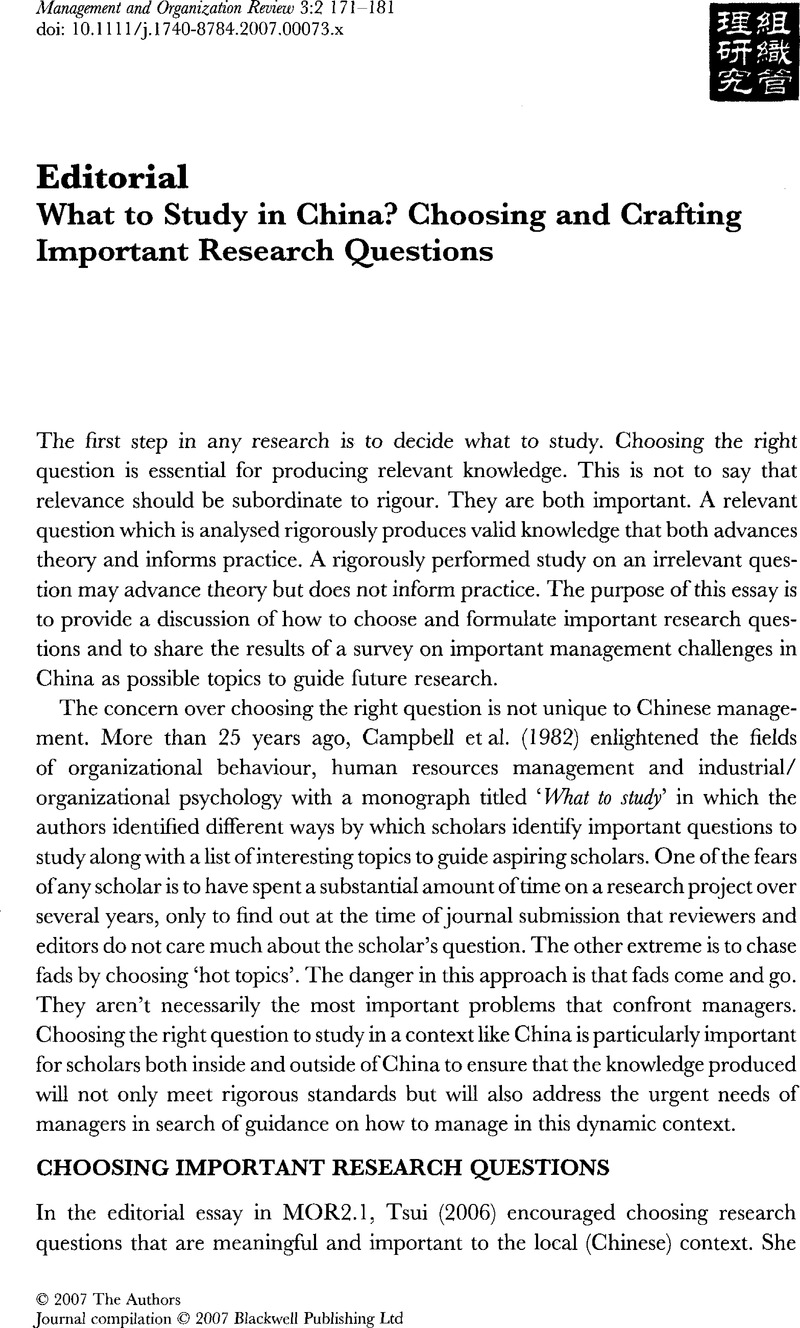Crossref Citations
This article has been cited by the following publications. This list is generated based on data provided by Crossref.
Li, Yuan
and
Peng, Mike W.
2008.
Developing theory from strategic management research in China.
Asia Pacific Journal of Management,
Vol. 25,
Issue. 3,
p.
563.
Walsh, Ian J.
Bhatt, Mamta
and
Bartunek, Jean M.
2009.
Organizational Knowledge Creation in the Chinese Context.
Management and Organization Review,
Vol. 5,
Issue. 2,
p.
261.
Jiang, Jianwu
Wang, Shuo
and
Zhao, Shuming
2012.
Does HRM facilitate employee creativity and organizational innovation? A study of Chinese firms.
The International Journal of Human Resource Management,
Vol. 23,
Issue. 19,
p.
4025.
Weiwei Wu, Prof. Bo Yu, Prof. John-Christopher Spender, Dr
Yao, Wei
Han, Xu
and
Li, Yuxiang
2015.
Cross-organizational knowledge creation theory from the perspective of I-Ching.
Chinese Management Studies,
Vol. 9,
Issue. 4,
p.
528.
MacIntosh, Robert
Bartunek, Jean M.
Bhatt, Mamta
and
MacLean, Donald
2016.
Research in Organizational Change and Development.
Vol. 24,
Issue. ,
p.
47.
Sheldon, Peter
and
Sanders, Karin
2016.
Contextualizing HRM in China: differences within the country.
The International Journal of Human Resource Management,
Vol. 27,
Issue. 18,
p.
2017.
Chen, Jonathan H.
and
Mahr, René
2019.
Chinese Acquisitions in Developed Countries.
p.
55.
Rai, Arpana
and
Agarwal, Upasna A.
2020.
Examining the impact of justice perceptions on workplace bullying: a moderated mediational model of PCV and PDO.
Personnel Review,
Vol. 50,
Issue. 2,
p.
420.
Jiang, Jianwu
Li, Shuling
and
Zhu, Wenbo
2022.
The trickle‐down effect of managers' belief in the importance of human resource management practices on employee performance: evidence from China.
Asia Pacific Journal of Human Resources,
Vol. 60,
Issue. 4,
p.
814.
Landström, Hans
Gabrielsson, Jonas
Politis, Diamanto
and
Sørheim, Roger
2022.
What's interesting in entrepreneurial education research? Identifying conversants sharing common interests in the field.
International Journal of Entrepreneurial Behavior & Research,
Vol. 28,
Issue. 9,
p.
104.



